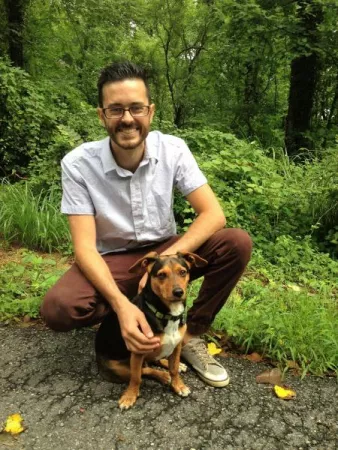The National Socio-Environmental Synthesis Center (SESYNC) is pleased to welcome Dr. Billy Hall as a new Postdoctoral Fellow. Billy recently finished his PhD in Global and Sociocultural Studies at Florida International University. Get to know our newest researcher:
Name: Billy Hall
PhD: Global & Sociocultural Studies (Geography), Florida International University
Hometown: Miami, FL
SESYNC Project: Long-Term Socio-Environmental Dynamics of Urban Segregation
How would you describe your primary field of study?
I do geography and political ecology, so I study how power relations shape the world, including its environments and people’s access to resources.
What are the broad questions you are interested in studying?
Right now I’m interested in how histories of racial segregation and struggle in cities bear upon contemporary urban transitions, especially concerning sustainability efforts and economic development. There is irrefutable evidence that 20th-century policies and practices—in housing, urban planning, money lending, policing—bifurcated life chances and opportunities in the United States along racial lines, even after the Civil Rights Act. Not only did this produce deep socio-environmental inequalities, it spatialized these inequalities. In other words, it often created separate zones of investment and neglect, safety and risk, health and toxicity. So, I am trying to understand more fully the way uneven landscapes are produced in order to better inform decision-making and urban planning.
What inspired you to choose this field of study?
As a society, we have to figure out how to mitigate the mounting problems presented by urbanization, population growth, global climate change, and limited natural resources. This will require not only technical expertise and innovation but also an honest recognition of the social history that brought us here. I view my work as unearthing and confronting aspects of our past that hold us back from collectively building a sustainable future.
Can you briefly describe your proposed SESYNC postdoctoral project?
The project I’m working on grows out of twenty years of research conducted through the Long Term Ecological Research Baltimore Ecosystem Study (LTER BES). At SESYNC, I’ll be working with a team of natural and social scientists and community stakeholders to investigate how legacies, lags, and path dependencies rooted in Baltimore’s historical development have come to shape the city’s social-ecological system.
I’ll be doing some archival research and fieldwork in Baltimore to both produce new data for the project and become more familiar with the city’s rich history and geography. In addition, I will help develop a comprehensive framework for understanding the social, economic, and environmental drivers and feedbacks that perpetuate urban segregation.
Why is SESYNC the right place to undertake this research?
SESYNC is intentional about exploring the many ways in which social and environmental issues are entangled. It fosters teams with the interdisciplinary skills and perspectives necessary to solve complex 21st-century problems. The collaborative intellectual environment here will help me grow into a scholar that can better communicate with scholars across disciplinary boundaries as well as communities outside of academic settings.
What are you reading right now?
I tend to read a few things simultaneously. Right now I’m reading Citizen by Claudia Rankine, The Color of Law by Richard Rothstein, and Ta-Nehisi’s recent reboot of the Black Panther comic book.
